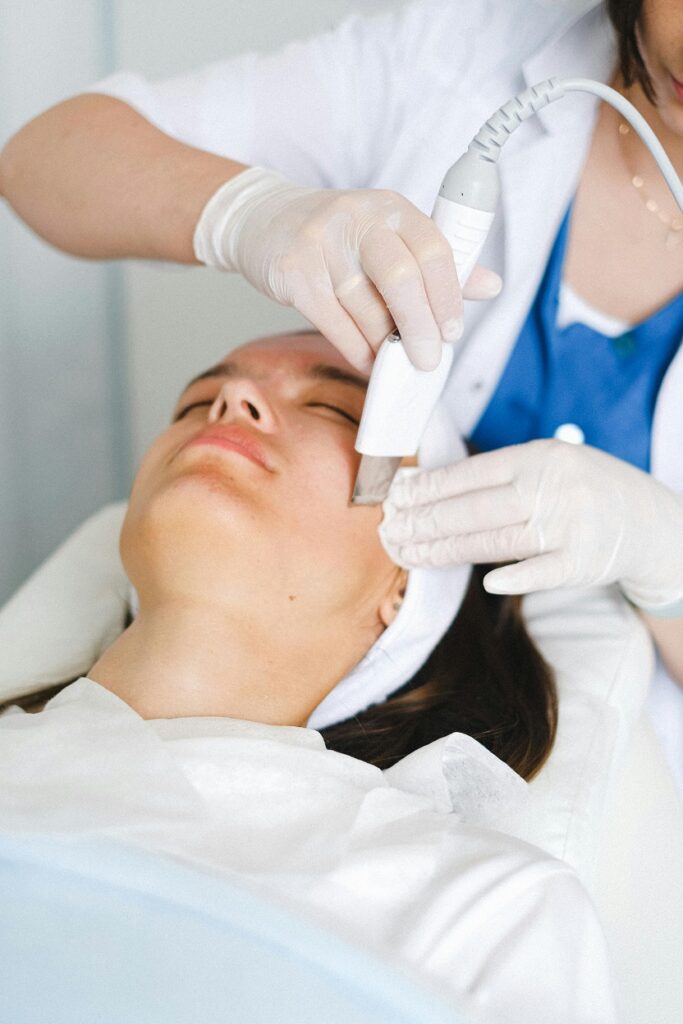Dermatologist: Everything You Need to Know
What is a Dermatologist?
A dermatologist is a medical specialist who diagnoses and treats conditions related to the skin, hair, and nails. Given that the skin is the body’s largest organ, dermatologists play a crucial role in maintaining overall health and wellness. They address everything from minor rashes to severe skin disorders like melanoma.

Types of Dermatologists
Dermatologists specialize in various fields, ensuring that patients receive targeted care for their specific needs.
Medical Dermatologists
These professionals focus on diagnosing and treating skin diseases such as acne, eczema, psoriasis, and rosacea. They often prescribe medications, topical treatments, and lifestyle changes to manage conditions effectively.
Cosmetic Dermatologists
Cosmetic dermatologists help improve the skin’s appearance through treatments like Botox, fillers, laser therapies, and chemical peels. Their work enhances aesthetic appeal while also treating conditions like hyperpigmentation and scars.
Surgical Dermatologists
Surgical dermatologists perform procedures such as mole removals, biopsies, and skin cancer surgeries. They play a key role in detecting and treating potentially life-threatening conditions like melanoma.
Common Skin Conditions Treated by Dermatologists
Skin conditions vary in severity, and dermatologists are equipped to handle a wide range of issues.
Acne
Acne is one of the most common reasons people seek dermatological care. It can be caused by hormonal imbalances, bacteria, or clogged pores. Treatments range from over-the-counter medications to prescription-strength options, including retinoids and antibiotics.
Eczema & Psoriasis
Both eczema and psoriasis cause red, itchy, inflamed skin. Eczema is often triggered by allergens, while psoriasis is an autoimmune condition. Dermatologists offer treatments like corticosteroids, biologic drugs, and light therapy to manage symptoms.
Skin Cancer
Early detection is crucial in treating skin cancer. Dermatologists conduct regular skin checks, remove suspicious moles, and perform biopsies when needed. Treatments include surgical excision, chemotherapy creams, and radiation therapy.
When to See a Dermatologist
Not sure if you need to see a dermatologist? Here are some key signs that indicate a visit may be necessary.
Persistent Skin Issues
If you’ve been dealing with chronic skin problems that don’t improve with over-the-counter treatments, it’s time to see a dermatologist. Conditions like severe acne, eczema, and fungal infections often require professional intervention.
Changes in Moles or Skin Growths
A sudden change in the shape, size, or color of a mole could be an early warning sign of skin cancer. Regular skin check-ups can help detect any abnormalities before they become serious.
Cosmetic Concerns
If you’re interested in reducing wrinkles, improving skin texture, or treating hyperpigmentation, a cosmetic dermatologist can help with non-invasive procedures to enhance your skin’s appearance.

What to Expect During a Dermatologist Visit
Visiting a dermatologist for the first time? Here’s what you can expect.
Initial Assessment
The dermatologist will examine your skin, hair, or nails, discuss your medical history, and ask about any symptoms you’re experiencing.
Diagnostic Procedures
Depending on your condition, the dermatologist may perform a biopsy, skin patch test, or use a dermatoscope to get a closer look at your skin.
Treatment Plan
After diagnosis, your dermatologist will recommend a treatment plan tailored to your needs. This may include topical treatments, oral medications, or procedural interventions.
Dermatological Treatments & Procedures
Prescription Medications
Dermatologists often prescribe topical creams, antibiotics, and oral medications to treat various skin conditions. Retinoids, steroids, and antifungal treatments are commonly used.
Laser & Light Therapy
Laser therapy is effective for treating acne scars, rosacea, and unwanted hair. Light therapy is also used to treat conditions like psoriasis and vitiligo.
Chemical Peels & Microneedling
These treatments help with skin rejuvenation, reducing fine lines, wrinkles, and hyperpigmentation. Microneedling stimulates collagen production, making the skin appear more youthful.
How to Choose the Right Dermatologist
Checking Credentials & Certifications
Make sure your dermatologist is board-certified by a recognized organization like the American Academy of Dermatology (AAD).
Specialization & Expertise
Depending on your skin concerns, choose a dermatologist who specializes in medical, cosmetic, or surgical dermatology.
Patient Reviews & Testimonials
Reading online reviews and patient testimonials can help you gauge the quality of care provided by a dermatologist.
Myths & Facts About Dermatologists
Myth: Dermatologists Only Treat Acne
While acne is a common condition, dermatologists treat a wide range of issues, from eczema to skin cancer.
Myth: Skincare Products Can Replace Dermatologists
Over-the-counter products can help with mild skin concerns, but professional care is necessary for serious conditions.
Conclusion
A dermatologist is your go-to expert for all things skin-related. Whether you need help with a chronic condition, early skin cancer detection, or cosmetic enhancements, dermatologists provide specialized care tailored to your needs. Prioritizing skin health can lead to better overall well-being, so don’t hesitate to book an appointment if you notice any concerning skin changes.
FAQs
1. How often should I visit a dermatologist?
It depends on your skin condition. For general skin health, an annual check-up is recommended, but those with chronic conditions may need more frequent visits.
2. Can dermatologists help with hair loss?
Yes! Dermatologists diagnose and treat hair loss caused by conditions like alopecia, hormonal imbalances, and scalp infections.
3. Is it necessary to see a dermatologist for acne?
If your acne is severe, persistent, or causing scarring, seeing a dermatologist is highly recommended.
4. What’s the best way to prevent skin cancer?
Wear sunscreen daily, avoid excessive sun exposure, and schedule regular skin check-ups with a dermatologist.
5. Do dermatologists perform Botox injections?
Yes, many dermatologists offer Botox and other cosmetic procedures to reduce fine lines and wrinkles.
6. Can I go to a dermatologist without a referral?
In most cases, you can book an appointment directly, but some insurance plans may require a referral.
7. What’s the difference between a dermatologist and an esthetician?
A dermatologist is a medical doctor who treats skin diseases, while an esthetician focuses on skincare treatments like facials and exfoliation.
8. Do home remedies work for skin conditions?
Some home remedies may help mild conditions, but professional treatment is necessary for severe or persistent skin issues.